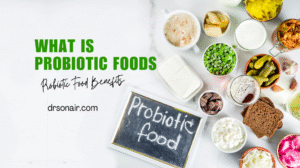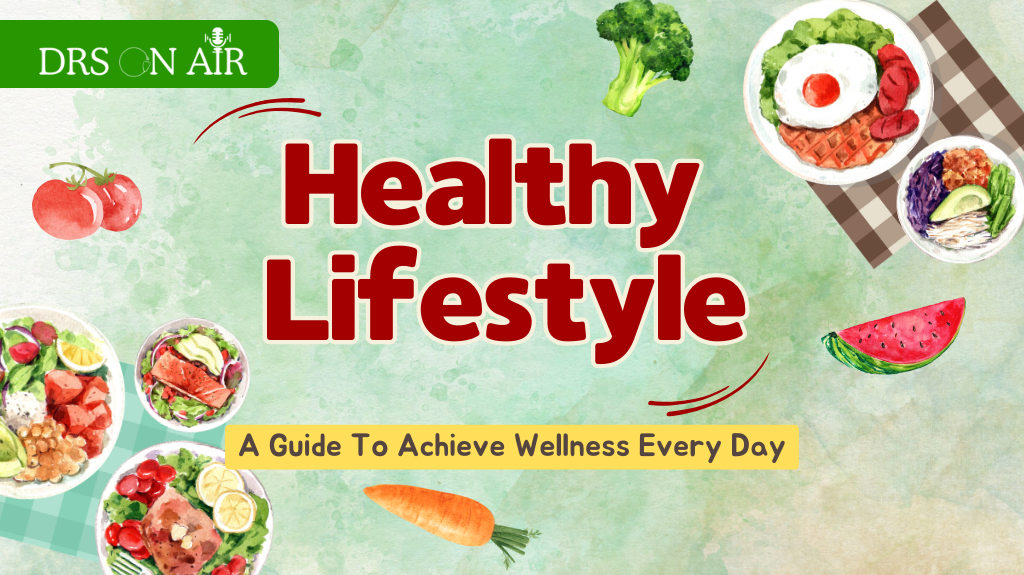What is Probiotic? A Deep Dive into Probiotic Food & Benefits
Probiotic Foods Benefits – In the past few years, talking about health and wellness has been buzzing around gut health, microbiome, and probiotics. That awareness around digestive health and immune function growth makes people attentive to what goes on inside the gut health. The most popular concepts about the role of probiotics are foods rich in them, like yogurt and fermented vegetables.

Let’s dive into the article that answers the questions about probiotics, their benefits, and the key difference between probiotics and prebiotics.
The Overview of Probiotics
- Typically, Probiotics are derived from the Greek words pro (for)and Bios (life). Scientifically, they are live microorganisms-mostly bacteria and some yeasts—that are consumed in adequate amounts, ensuring health benefits to the host.
- Calling the -good or friendly bacteria won’t be a wrong term, of course-maintaining the natural health balance of organisms in the intestines. A healthy gut contains trillions of microbes that aid digestion, produce vitamins, and support immune functions.
What is Probiotic Food?
- Probiotic Foods contain live microorganisms that are beneficial for health. Such foods are naturally fermented, a process where natural bacteria feed on the sugars and starches in the food, creating lactic acid. This preserves the food and promotes the growth of beneficial bacteria.
Common Probiotic Foods:
Yogurt
- It is a well-known probiotic food, fermented milk with bacterial cultures.
Probiotic Curd
- That’s a variation of traditional yogurt enhanced with additional strains of beneficial bacteria.
Kefir
- It’s a fermented milk that is richer in probiotics than yogurt.
Sauerkraut & Kimchi
- It’s fermented cabbage; rich in lactic acid bacteria.
Tempeh
- The soy-based fermented product from Indonesia.
Miso
- That’s a Japanese seasoning made from fermented soybeans.
Pickles
- That’s naturally fermented cucumbers-not vinegar-pickled.
Kombucha
- It’s a fermented tea with live bacterial cultures.
Probiotic Foods, when consumed regularly, help replenish & nourish the gut, providing various health benefits.
Health Benefits of Probiotic Foods
For decades, probiotics have come with findings that are promising for health. Some advantageous benefits include-
Improved Digestive Health
Ensure the probiotics help maintain a healthy balance of gut bacteria. It may aid in reducing-
- Constipation.
- Diarrhea.
- Bloating and gas.
- Symptoms of irritable bowel syndrome.
Boosted Immune System
A large part of immunity resides in gut health. Therefore, probiotics stimulate the production of natural antibodies and immune cells like T lymphocytes and lgA-producing cells. They help the body defend itself against pathogens.
Mental Health Support
Do you know the gut-brain axis links within the gastrointestinal tract & the brain? The health studies found probiotics help in alleviating symptoms such as
- Anxiety.
- Depression.
- Stress.
Weight Management
- Certain strains of probiotics assist in reducing body fat and managing weight. They help influence metabolism, reduce inflammation, and regulate appetite hormones.
Better Nutrient Absorption
- Typically, probiotics enhance nutrient absorption—calcium, iron, and vitamins B12 and K2. They also improve enzyme synthesis and gut wall integrity.
Allergy and Skin Health
- Probiotic consumption has shown promising results in reducing the severity of eczema in infants and may reduce allergic reactions by improving immune tolerance.
What is Probiotic Curd?
Probiotic curd is similar to regular curd-dahi but rich in strains of beneficial bacteria added during the fermenting. Unlike traditional curd-probiotic curd has multiple strains, such as
- Lactobacillus acidophilus
- Bifidobacterium bifidum
- Lactobacillus rhamnosus
These strains have proven health benefits and survive better in the gastrointestinal tract, making them more effective.
Benefits of Probiotic Curd
It improves the digestion of lactose for lactose-intolerant individuals.
- Improved immunity.
- Better gut health.
- Relief from bloating and indigestion.
- Lower cholesterol levels.
- Cooling and nutritional food options for the hot season.
Pre and Probiotic Capsules: Uses and Benefits
Today, pre and probiotic capsules have become increasingly popular as dietary supplements. Here is the classified version-
- Probiotic capsules contain live bacteria- (like Lactobacillus and Bifidobacterium) intended to restore or improve gut flora.
- Prebiotic Capsules are infused with fibers and compounds. These are fed on good bacteria already present in your gut.
- Pre- and Probiotic Combo Capsules generally combine both elements to support the growth and activity of beneficial bacteria.
The Common Uses-
Post-Antibiotic Recovery
- Taking probiotic capsules lets you store the gut flora.
Irritable Bowel Syndrome (IBS)
- People with IBS find it challenging to get relief, and that’s possible with digestive help after specific probiotic strains.
Traveler’s Diarrhea
- Taking probiotics before and during travel may reduce the risk of digestive upset.
Vaginal and Urinary Health
- Certain strains help maintain a healthy balance of bacteria in the female urogenital tract.
Immune Support
- Regular use may enhance immune resilience.
Notable is to consult your healthcare provider before nudging to start supplements—especially in case you are immunocompromised or have chronic health conditions.
How is it Different from Prebiotics?
- Let’s clarify the points that make probiotics different from prebiotics.
- Probiotics are live-beneficial bacteria, but prebiotics are non-digestible fibers that feed on good bacteria. The perfect examples of probiotics are Lactobacillus and Bifidobacterium, and prebiotics are Inulin, fructooligosaccharides (FOS), and resistant starch.
- Probiotics are found in yogurt, kefir, probiotic curd, and capsules. Other prebiotics are in garlic, onions, bananas, asparagus, and oats.
- Simply put, prebiotics are food for probiotics, which improve gut flora, aid the digestive tract, boost immunity, and stimulate growth.
The Final Verdict
Probiotic Food- When it comes to powerful tools to improve your digestive wellness and boost immunity, probiotics are best. From natural probiotic foods like yogurt to pre- and probiotic capsules, there are numerous ways to incorporate them for better health. Precisely with all wellness trends in the queue, to attain health every day, keeping balance and moderation, go for tips that make the gut fit.
Home | Vkare | Fuschia | Physiovits | Dr.Snug


